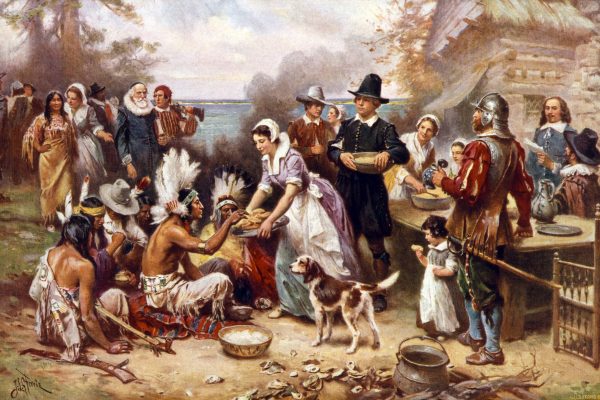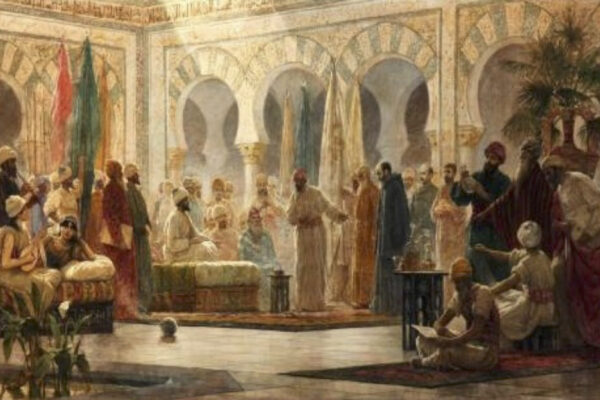Why is the historical figure of Tipu Sultan at the center of controversy in southern India?
Why is the historical figure of Tipu Sultan at the center of controversy in southern India?
Tipu Sultan, also known as the Tiger of Mysore, was a renowned ruler of the Kingdom of Mysore in Southern India from 1782 to 1799. He was known for his military prowess, his efforts to modernize the administration and economy of his kingdom, and his resistance against British colonialism. Tipu died in battle against the British forces during the Fourth Anglo-Mysore War.
However, his name and fame have been nullified and distorted for dirty political interests. In recent times, Tipu Sultan has become a controversial figure in Indian politics, with some politicians and groups seeking to appropriate his legacy for their own political gains. In this article, a simple effort is given to examine some of the fallacies surrounding Tipu Sultan and the real facts about his life and legacy, supported by historical sources.
Fallacy 1: Tipu Sultan was a religious fanatic who persecuted Hindus
One of the most common fallacies surrounding Tipu Sultan is that he was a religious fanatic who persecuted Hindus. This narrative has been propagated by some politicians and groups in India who seek to promote a divisive communal agenda. However, this portrayal of Tipu Sultan is not supported by historical evidence.
Firstly, it is important to note that Tipu Sultan was a patron of the arts and literature, and his court was known for its cultural richness and diversity. Many Hindu scholars, poets, and artists were part of his court, and he supported the construction of Hindu temples and the celebration of Hindu festivals.
Secondly, Tipu Sultan’s administration was known for its religious tolerance. According to historian Kate Brittlebank, “Tipu’s kingdom was a place of religious diversity and harmony, where both Hindus and Muslims enjoyed religious freedoms and opportunities.” Tipu Sultan abolished the jizya tax on non-Muslims, and his officials were instructed to treat all subjects equally regardless of their religion.
Fallacy 2: Tipu Sultan was anti-British and fought for Indian independence
Surrounding Tipu Sultan, another fallacy is that he was a nationalist who fought for Indian independence and against British colonialism. This narrative has been promoted by some politicians and groups in India who seek to appropriate Tipu Sultan’s legacy for their own political gains. However, this portrayal of Tipu Sultan is not entirely accurate.
While it is true that Tipu Sultan resisted British expansion in Southern India and fought against British forces in several battles, his primary objective was to protect the sovereignty of his own kingdom rather than to fight for Indian independence as a whole. In fact, Tipu Sultan sought alliances with other European powers, such as France and Turkey, in order to counter British influence in the region.
Moreover, Tipu Sultan’s resistance against British colonialism was not motivated by a belief in Indian nationalism or anti-colonialism as we understand it today. As historian Kate Brittlebank notes, “Tipu’s actions were not motivated by a modern sense of nationalism or anti-colonialism, but rather by a pragmatic understanding of the balance of power in the region and a desire to maintain his own sovereignty.”
Fallacy 3: Tipu Sultan was a tyrant who oppressed his subjects
Another fallacy about him is that he was a tyrant who oppressed his subjects. This narrative has been propagated by some politicians and groups in India who seek to discredit Tipu Sultan’s legacy. However, this portrayal of Tipu Sultan is not supported by historical evidence.
Firstly, Tipu Sultan’s administration was known for its efficient and modern governance practices. He implemented a system of land revenue collection based on actual measurement of land, which was more equitable than the earlier system of arbitrary assessment. He also established a network of roads and canals to facilitate trade and communication and promoted industries such as silk production and shipbuilding.
Secondly, Tipu Sultan was known for his concern for the welfare of his subjects. He established hospitals and dispensaries for the poor and provided relief measures during natural disasters and famines. He also encouraged the education of both boys and girls, and established several schools and libraries.
However, it is important to note that Tipu Sultan was not without flaws. He was known to be a strict disciplinarian and imposed severe punishments on those who violated his orders. He also conducted several military campaigns against neighboring kingdoms, some of which resulted in the loss of lives and property.
Fact 1: Tipu Sultan was a military genius
One of the most remarkable aspects of Tipu Sultan’s reign was his military prowess. He was an innovative and strategic military leader, and his army was known for its modern weaponry and tactics. Tipu Sultan’s use of rockets in warfare was particularly noteworthy, and he is credited with being one of the pioneers of modern rocketry.
According to historian B. A. Saletore, “Tipu’s military skill was of the highest order, and he was able to hold his own against some of the best European armies of his time.” Tipu Sultan’s victories against British forces in several battles, including the Battle of Pollilur in 1780 and the Siege of Bangalore in 1791, are a testament to his military genius.
Fact 2: Tipu Sultan was a patron of the arts and culture
Despite his reputation as a military leader, Tipu Sultan was also a patron of the arts and culture. He was known for his love of poetry, music, and dance, and his court was a center of artistic and literary activity. Tipu Sultan himself was a talented poet, and composed several works in Persian and Kannada.
According to historian C. Hayavadana Rao, “Tipu’s court was a melting pot of different cultures and languages, and he encouraged the exchange of ideas and artistic expressions.” Tipu Sultan patronized several poets, musicians, and artists, including the celebrated Kannada poet Sarvajna.
Despite the controversies surrounding his legacy, Tipu Sultan’s contributions to Indian history and culture continue to inspire people across India and beyond. His military prowess, his efforts to modernize his kingdom, and his patronage of the arts and culture are all aspects of his legacy that continue to resonate with people.
In recent years, there have been several efforts to reclaim Tipu Sultan’s legacy from the political and communal agendas that seek to appropriate it. Let’s have a glance over this.
In 2015, the government of Karnataka, a state in southern India, decided to celebrate Tipu Sultan’s birth anniversary. This decision was met with opposition from some political parties and groups, who claimed that Tipu Sultan was a “religious bigot” who persecuted Hindus and Christians. In 2017, the BJP government in Karnataka decided to stop celebrating Tipu Sultan’s birth anniversary. This move was criticized by the opposition parties and some historians. In addition, the BJP government in Karnataka decided to remove the chapter on Tipu Sultan from the state’s history textbooks in 2019. Furthermore, in 2021, the Karnataka government decided to rename the Bengaluru International Airport after Kempegowda, a 16th-century chieftain. This move was criticized by some political parties and groups. Even currently, when Karnataka state assembly election campaigns are going on, political parties continued to stir up communal tensions about tarnishing Tipu Sultan’s name.
Conclusion
So in a nutshell, the fallacies surrounding Tipu Sultan’s legacy are rooted in political and communal agendas rather than historical facts. Tipu Sultan was a complex historical figure who cannot be reduced to simplistic labels such as “tyrant” or “nationalist”. His legacy is one that continues to inspire people across India and beyond, and it is important that we recognize and appreciate the real facts about his life and legacy.
Political parties are playing a lethal game on his name for their vote banks, but this heinous act begot dirty consequences among the people of Karnataka as communal hatred and minority subjugation began to soar day by day. Political parties should stop this deceptive card play and baseless distortion of India’s freedom fighters and historical figures.
References
- Habib, Irfan. “Tipu Sultan’s Search for Legitimacy: Islam and Kingship in a Hindu Domain.” Modern Asian Studies, vol. 16, no. 4, 1982, pp. 647-697.
- Hasan, Mohibbul. History of Tipu Sultan. Aakar Books, 2004.
- Saletore, B. A. “Tipu Sultan: Hero and Tyrant.” Indian Historical Review, vol. 3, no. 2, 1976, pp. 277-290.
- Rao, C. Hayavadana. The History of Mysore. Bangalore Printing and Publishing Company, 1929.
- Rao, N. Venkataramana. Tipu Sultan: The Tyrant of Mysore. Gyan Publishing House, 2005.
- Khan, Yasmin. The Great Partition: The Making of India and Pakistan. Yale University Press, 2008.
- Sardar, Ziauddin. “Tipu Sultan: Myths and Reality.” BBC News, 20 November 2019, https://www.bbc.com/news/world-asia-india-50325597.
- “Tipu Sultan: The Tiger of Mysore.” Live History India, 7 November 2020, https://www.livehistoryindia.com/snapshort-histories/2020/11/07/tipu-sultan-the-tiger-of-mysore.





